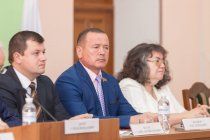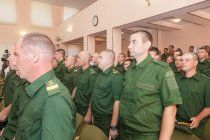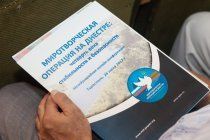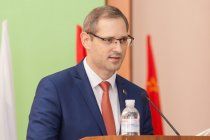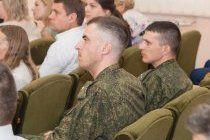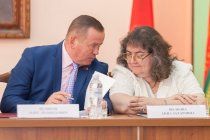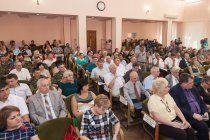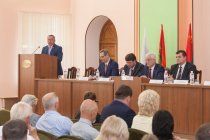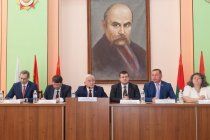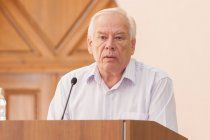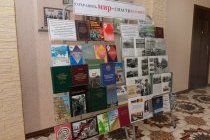 Русский
Русский English
English-







The Peacekeeping Operation on the Dniester: a quarter century of stability and security
On the eve of the 25th anniversary of the Russian peacekeeping forces in Tiraspol in Pridnestrovian State University named after T.G. Shevchenko hosted an international online conference "Peacekeeping Operation on the Dniester: a quarter century of stability and security". Representatives of the state authorities of the republic, Russian and Pridnestrovian experts, students took part in the event. A wide range of topical aspects of the implementation of the peacekeeping operation, the importance of its preservation, as well as the role of the peacekeeping forces in maintaining security in Pridnestrovie were discussed.
In the course of the plenary session, greetings were sent to the participants of the meeting by the President of PMR Vadim Krasnoselsky, the head of the Government Alexander Martynov, the speaker of Pridnestrovian parliament Alexander Shcherba, as well as the ambassador at large of the Russian Foreign Ministry Sergey Gubarev.
The conference participants remembered the events of 25 years ago. A quarter of a century ago, on July 21 in Moscow, Presidents of Russia and Moldova Boris Yeltsin and Mircea Snegur in the presence of the head of PMR Igor Smirnov signed an agreement on the principles of the settlement of an armed conflict that defines the basic principles of a peacekeeping operation on the Dniester.
July 29, 1992, they remembered with special gratitude another date. This day, the first units of Russian peacekeeping forces entered Bendery. They were welcomed as liberators. Russian peacekeepers stood up for peace and tranquility on the Pridnestrovian land.
Ex-chairmen of the JCC from PMR Vladimir Rilyakov, Vladimir Bodnar talked about the tasks that had to be dealt with in the first years of the commission's work. Primary - the breeding of the warring parties, as well as the demining of the territory, the search for missing persons.
An alarming symptom today is the attempts to question the effectiveness of the peacekeeping mission, the activities of the Joint Control Commission. Refusal of the current format without full consideration of all interested players, substitution of the concept of "settlement" by ousting Russia from the region and the imposition of technically unworked projects such as the "international police or civil mission" is fraught with the emergence of a security vacuum, all participants of the international conference are convinced.
There were discussion panels with online inclusions of Russian experts within the framework of the event.


